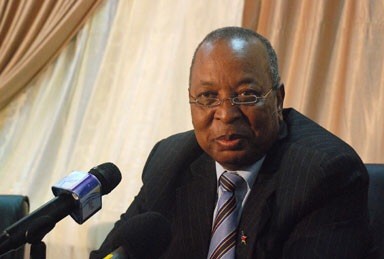David Deng Athorbei has taken office as South Sudan’s finance minister without approval from parliament as required by the country’s constitution, according to sources in Juba.
Now in his second week on the job, the minister-designate is treated as if he already had lawful authority as minister. According to Thomas Wani Kundu, information committee chairman in the parliament, Athorbei has assumed office since about Friday last week.
Article 113 (2) of the Transitional Constitution of South Sudan says, “Appointment of the Ministers of the National Government shall be approved by a resolution of the National Legislative Assembly adopted by a simple majority vote of all members.”
MP Thomas Wani was asked whether the parliament sat to approve Athorbei’s appointment in accordance with this constitutional provision. He replied that “there is no requirement” to do so because Athorbei is “not new” and already was vetted for previously held offices.
“First of all, David Deng Athorbei himself is a member of parliament, and at the same time he was the former finance minister in the same ministry,” said the MP.
He argued that the constitutional requirement for parliamentary approval of ministerial appointments applies only to “new people.” He told Radio Tamazuj, “Now David Deng Athorbei is the legitimate Minister of Finance of the Republic of South Sudan.”
Athorbei’s appointment came last week on 12 January, the same day that the president decreed the removal of Aggrey Tissa Sabuni from the same position. President Kiir did not give a reason for why he chose to replace his finance minister.
One economic observer who spoke to Voice of America said that Sabuni had been performing well in the role and Kiir’s decision was possibly linked to the issue of financing of the elections. James Alic Garang, a senior economist at the Juba-based Ebony Center for Strategic Studies, said the polls might be a key reason for the changes in the finance ministry.
“The president may need a different hand, a different overseer, a different guidance with respect to the funding of elections,” Alic said. “If you bring in a new minister, the level of cooperation may be higher than the one that has been there for a long time.”
Meanwhile, Kundu says that the national parliament remains officially “on leave” until 6 April.



